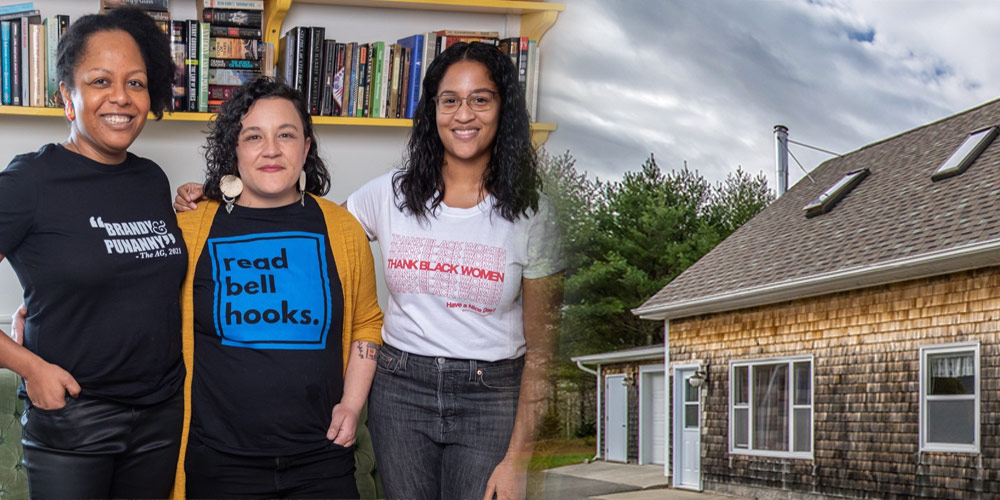
There aren’t a lot of dedicated spaces for Black, Indigenous, and people of colour in Nova Scotia. Starting in 2020, one community group wanted to change that.
They decided to create a cottage retreat for BIPOC on the province’s South Shore, in Birchtown, a site of significant Black history. It would be owned and run by the community — a place to rest, relax, and have access to nature. Under the banner of “Buy Black Birchtown,” they raised money through donations and memberships.
It didn’t turn out as planned.
On this week’s CANADALAND, reporter Cherise Seucharan speaks to some of the organizers of Buy Black Birchtown who went into the project to help build a dream, and came away from it feeling betrayed:
But why was it important to create this space?
In the the middle of 2020, as protests against the death of George Floyd were taking place around the world, reports of racism in Nova Scotia were actually on the rise. Statistics Canada found that Nova Scotia’s hate-crime rate jumped 70% from 2019 to 2020, the biggest increase of any province; Black people were the group most frequently targeted. And those were just the incidents reported to police.
Beyond such acute examples of bigotry, however, there were several reasons why Buy Black Birchtown organizers believed a BIPOC-centred respite was needed. Here are edited excerpts of what some of them told us:
“I think the world shifted a lot for everyone in 2020 — a lot of us, especially racialized people, were dealing with this trauma of being isolated, but then watching the shift in conversation globally, and the shift in action globally, around race. And I think Nova Scotia was not exempt from that. And people were coming forward a lot more with instances of how they were feeling, or how they were not feeling safe.” — Liesl Mulholland
“For me, growing up in school, our history classes were very whitewashed. I wasn’t taught the full scope of what really went on or happened as it pertained to people of colour, Indigenous people, Black folks, and queer folks, and a lot of the struggles that they went through historically. It was more like, ‘Oh, lah-di-dah, we’re in Canada, and this is how this happened.’ And so we wanted to create a space where that education could happen as well.” — Lauryn Harris
“Black and racialized people were craving rest, because at this time, too, with all of this happening, a lot of organizations that are traditionally white-centred were then reaching out to Black leaders in community, asking us to speak about this or come do diversity-equity-inclusion training. But there was no Black-owned space where we felt safe to go and have that rest.” — Mulholland
“I thought that this would be amazing, to have a BIPOC retreat space, and was looking to support it in any way possible — you know, financially, if possible, or by being one of the ‘co-owners’ or ‘co-organizers’ or anything like that. I guess, in a way, too, it was saving us, in that we were dreaming — having this space to dream up what we wanted. And you know, from following other social media posts, like from The Nap Ministry, you’d see, like, ‘Rest is Resistance.'” — Mulholland
Images at top: Liesl Mulholland, Jessika Hepburn, and Shekara Grant, in a photo posted to one of the GoFundMe campaigns for Buy Black Birchtown, plus a photo of the smaller house on the property, from a BirchTown Retreat brochure.